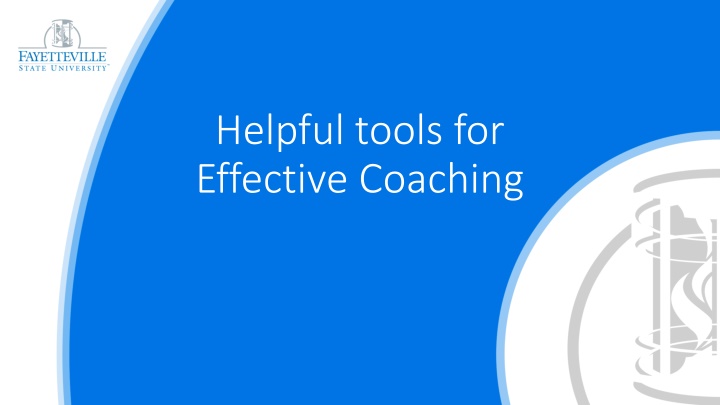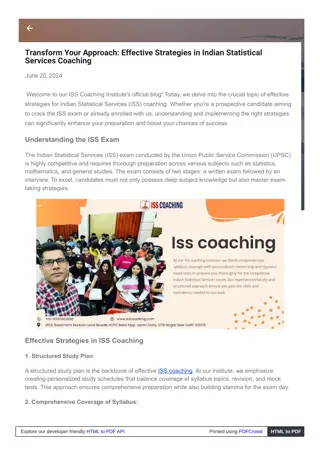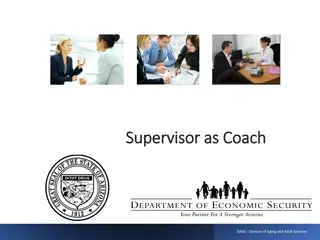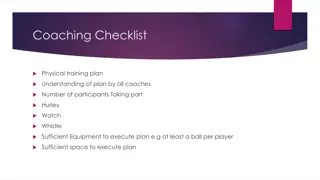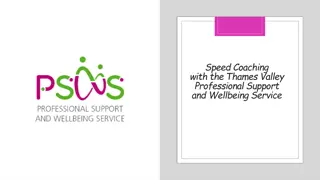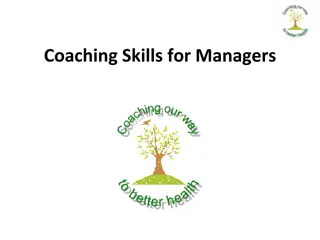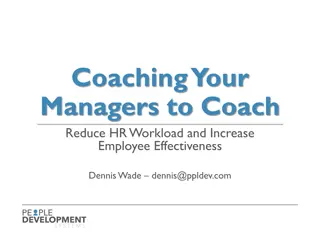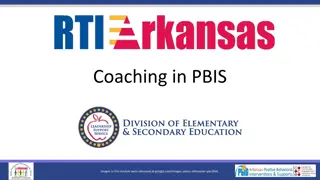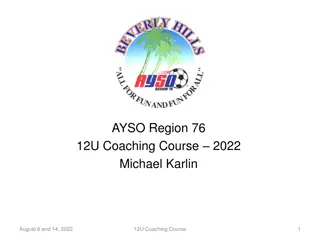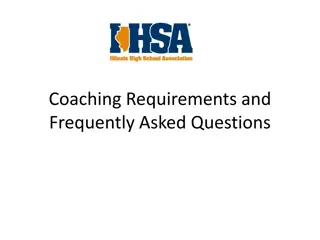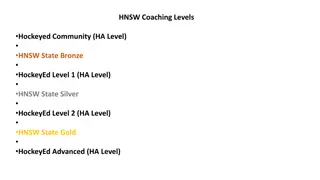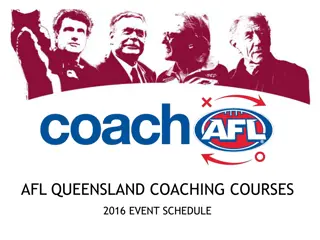Effective Coaching Techniques for Employee Development
Understanding the importance of coaching for employee growth, this content delves into the reasons behind coaching, qualities of a great coach, effective coaching techniques, and tips for better coaching discussions with employees. It emphasizes the need to coach all employees, including top performers, and provides insights on motivation and recognition strategies.
Download Presentation

Please find below an Image/Link to download the presentation.
The content on the website is provided AS IS for your information and personal use only. It may not be sold, licensed, or shared on other websites without obtaining consent from the author.If you encounter any issues during the download, it is possible that the publisher has removed the file from their server.
You are allowed to download the files provided on this website for personal or commercial use, subject to the condition that they are used lawfully. All files are the property of their respective owners.
The content on the website is provided AS IS for your information and personal use only. It may not be sold, licensed, or shared on other websites without obtaining consent from the author.
E N D
Presentation Transcript
Helpful tools for Effective Coaching
Why do I need to coach my employees? Shouldn t they just know? The answer is NO! What is coaching? Coaching is informal one-to-one or small group interaction with employees. Helps with encouraging, motivating, and developing your employees a little more everyday You can observe their performance, help them identify weak areas to be able to work with them to develop their skills and strengthen their abilities Provides your employees with training and assistance then need to take charge of their jobs and their careers.
Why do I need to coach my employees? Shouldn t they just know? We want to let employees know what they have done well and what they need to improve Show employees the steps they need to take to improve performance and become more effective workers Recognize employee accomplishments Take away: What are some of your coaching techniques?
What makes a great coach? Take away: What are some qualities that you use and value most as a coach and an employee? Good coaches are positive and enthusiastic Observant Pay attention to what their employees do and how they do it. Knowledgeable Inspire confidence because employees' sense that their coach know from personal experience what they are talking about Good Communicator Speak clearly for understanding Good Listeners Following with questions and listening to employee's reply s Providing resources that employees need to succeed Respectful and patient Empowering to employees Welcome initiative and promoting employee growth and development
How can I have a better coaching discussion with my employees? You and your employee can jointly determine the agenda ahead of time. Focus on one or two issues at a time Start meeting by following up on the employee's progress since the last meeting that was held Show appreciation for the employee s effort and achievement. Even if the employee is not performing up to expectations, try to find some positive aspect of performance that you can praise Ask for feedback from the employee
My employee is a top performer! They don t need any coaching . WRONG! Keep top performers challenged Do not neglect. Keep giving feedback! Give them adequate recognition and rewards What does exceeds mean to our employee? If you have an employee that is exceeding, take the time to write it! What are examples of motivators? Opportunities to learn new skills or technologies Opportunity to specialize in a desired area Public recognition during meetings Commendation letters for the employee s personnel file
My employee is doing their job, do I need to say anything? Is this the best my employee can do? Probably not. But why? Is it because, Do they not understand the standards or expectations that were given to them Is it lack of challenging work What can I do? Point out strength before working on weaknesses what are they capable of and what they could build on Clarify expectations and standards Develop a plan for professional growth and development THESE EMPLOYEES COULD BECOME YOUR TOP PERFORMERS WITH EFFECTIVE COACHING! Take away: Meeting Expectations is not a negative rating? How can supervisors help break this stigma?
My employee is a poor performer, can they be helped? YES, they can! How? Let's figure out why they are a poor performer? Did they not receive proper training Is the job not for them Do they lack motivation and/or self discipline What can I do? Talk to your employee about their jobs, life goals, and problems Work on solutions to help employees feel empowered Circle back to existing goals while taking employees perspective into consideration Develop and agree to a plan of action Schedule frequent follow up sessions, this will require consistent coaching Take away: Do you have any experiences working with different types of performers? If so, what techniques did you use?
